Carbon Brain Trust Visits the SA Ranch
On June 18th and 19th, the SA Ranch team was blessed by a visit to the ranch by John Wick and Mark Easter. John Wick is the co-founder and driving force behind the Marin Carbon Project (https://www.marincarbonproject.org/) and Mark is a plant ecologist who works at Colorado State University (CSU) developing greenhouse gas inventory methods for land use, forestry, and agriculture. It was a fascinating couple of days. John, in close collaboration with Dr. Whendee Silver of the University of California, Berkeley, has dedicated close to a decade of his time, ranch, and personal money to prove that there are sustainable farming practices. Specifically, he worked with the University of California, Berkeley to conduct rigorous scientific tests over many years. His work has helped prove that there are certain management practices that conserve and enhance carbon storage in rangelands. This conservation can help to mitigate climate change while enhancing sustainability under future climate scenarios. Mark Easter works with Dr. Keith Paustian’s Lab Group which resides within the Natural Resource Ecology Laboratory at CSU. He is currently the technical lead for the Carbon Benefits Project (http://carbonbenefitsproject-compa.colostate.edu), an initiative co-financed by the Global Environmental Facility that is building decision support systems for sustainable land use projects to use in evaluating their greenhouse gas balance. Mark has been collaborating with John as well as the Natural Resource Conservation Service (NRCS) to develop a greenhouse gas accounting system (COMET-Farm, http://cometfarm.nrel.colostate.edu), a tool which will be employed at the Sandy Arrow Ranch. We are currently entering the Sandy Arrow’s agricultural fields and rangeland into the COMET-Farm model and expect that the practices we are driving toward will support “modeled” carbon sequestration rates of approximately 3 tons per acre. The good news is that the Marin Carbon Project’s findings are conclusive: applying compost applications to rangeland ecosystems positively impacts carbon levels. These results are significant because bringing carbon back to the soil is the best (and maybe only) way to actually start cooling the planet. The SA Ranch sustainable team will be co-collaborating with John, CSU and the NRCS on this important work.
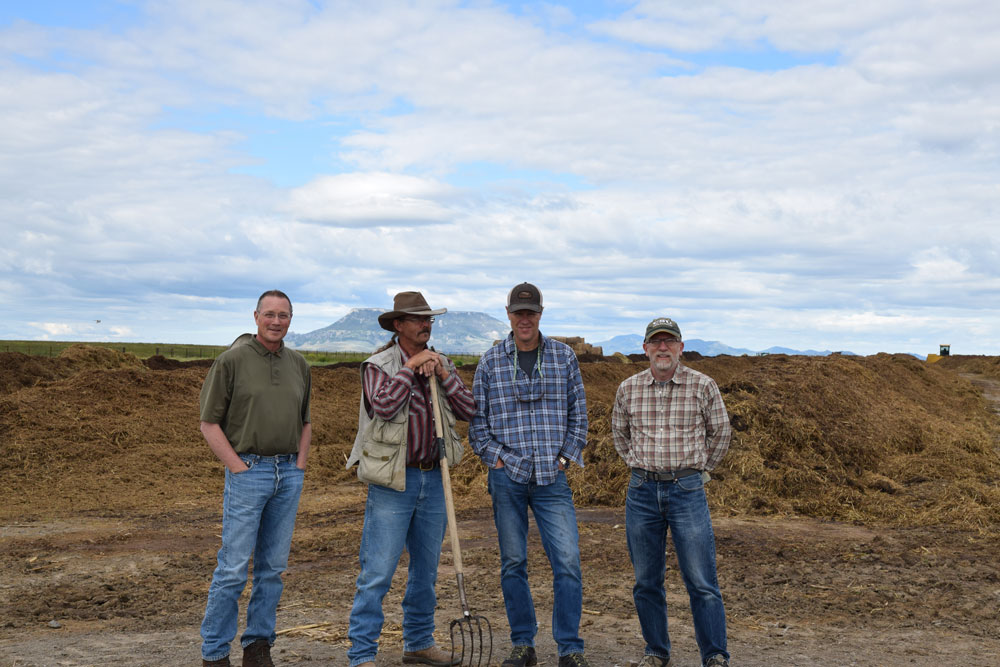
John Wick (Marin Carbon Project Co-Founder), Richard Leach, Eric Dillon (Sandy Arrow Owner), Mark Easter (Senior Research Associate, Natural Resource Ecology Laboratory)
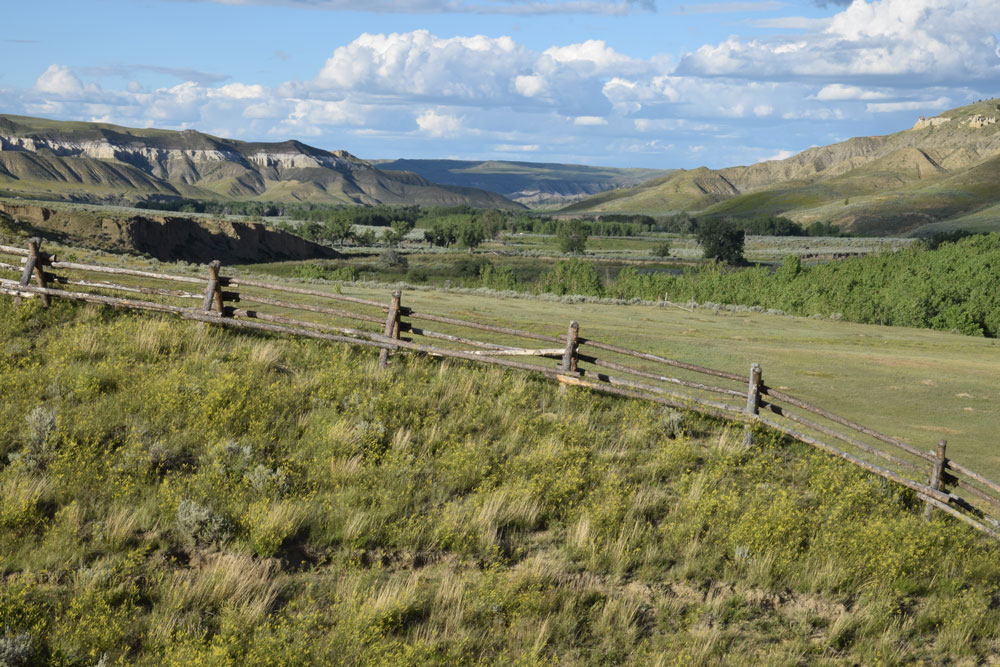
Arrow Creek – view from the warming cabin
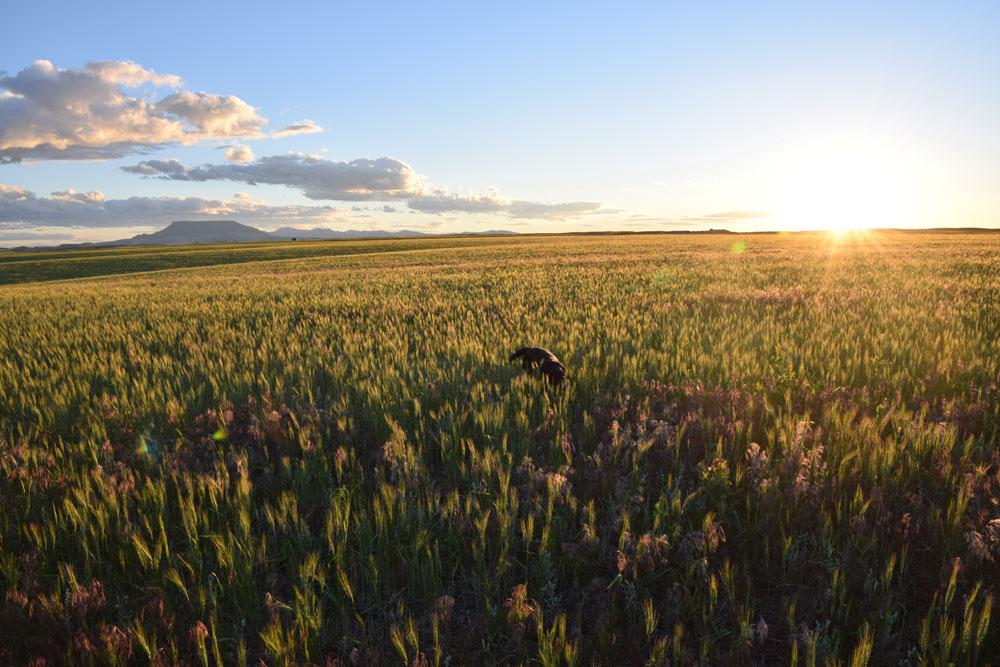
Upper Bench at sunset with Square Butte in the background
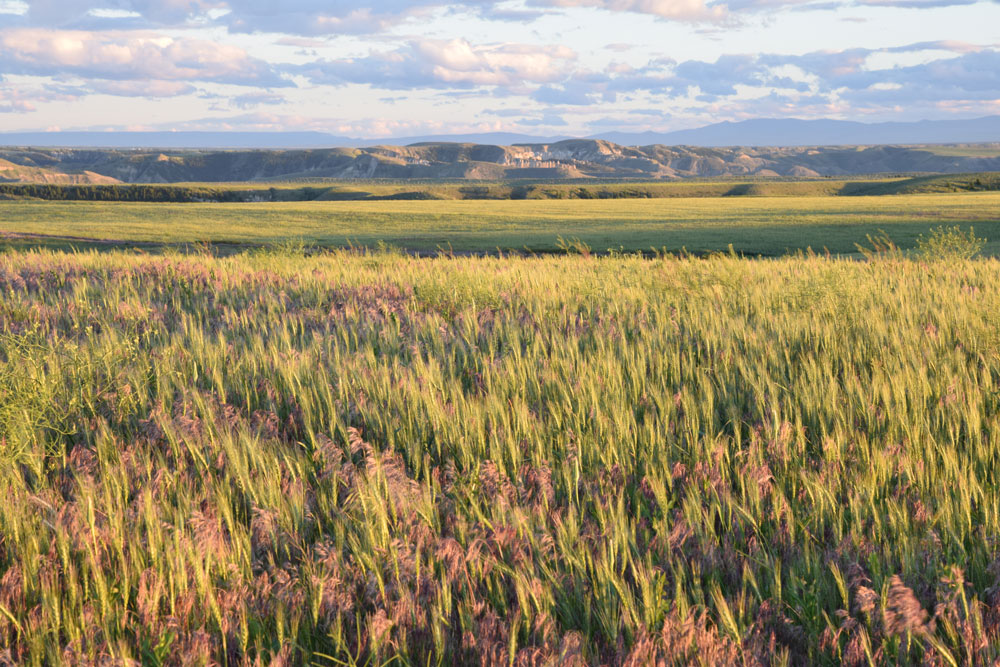
Upper Bench
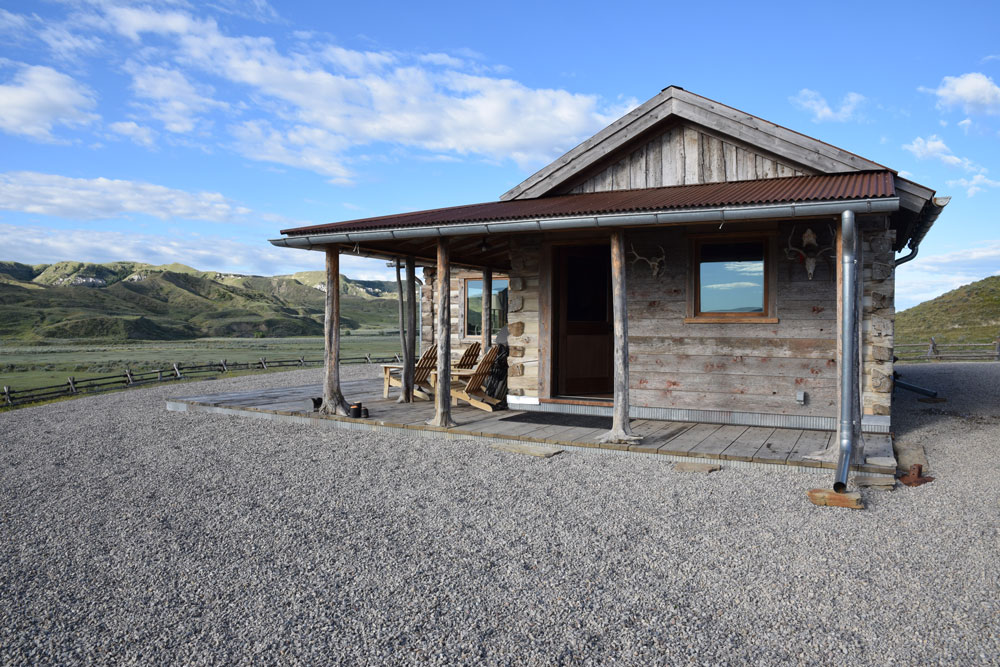
Warming cabin
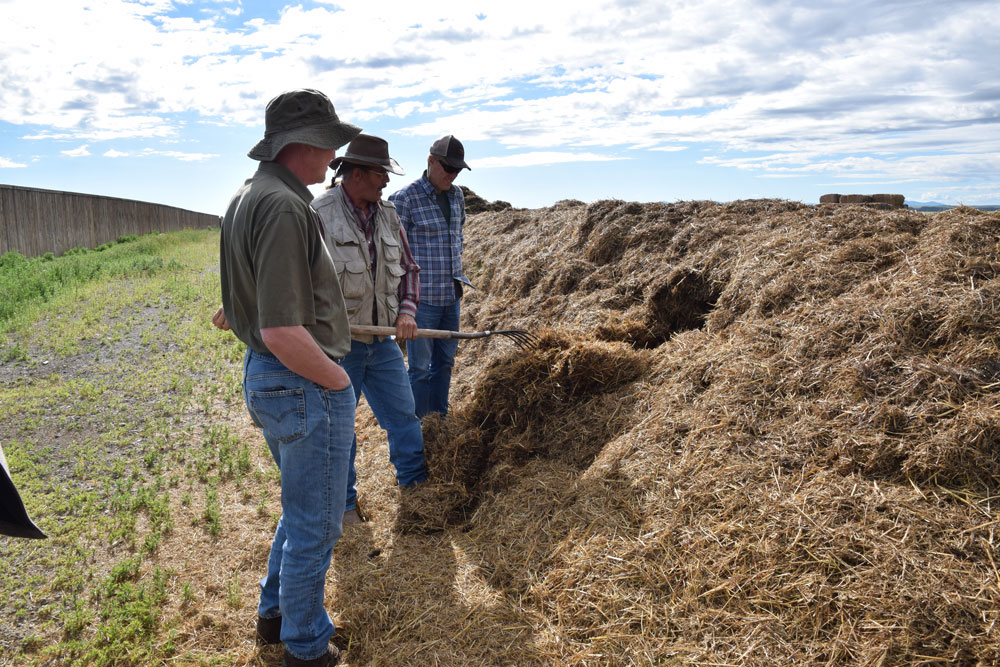
Windrow of early stage compost
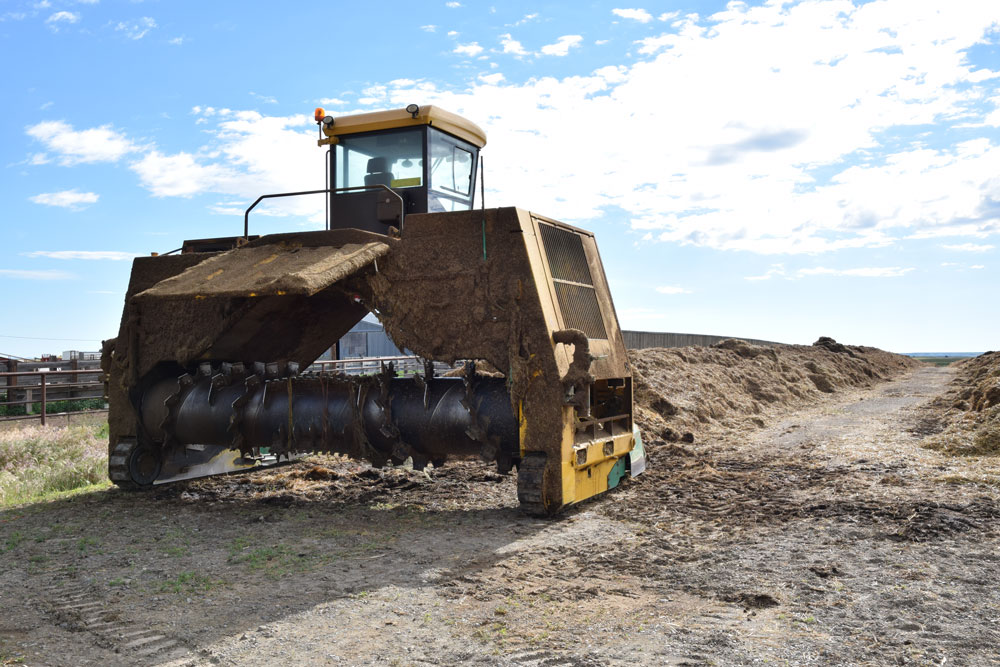
Compost turner
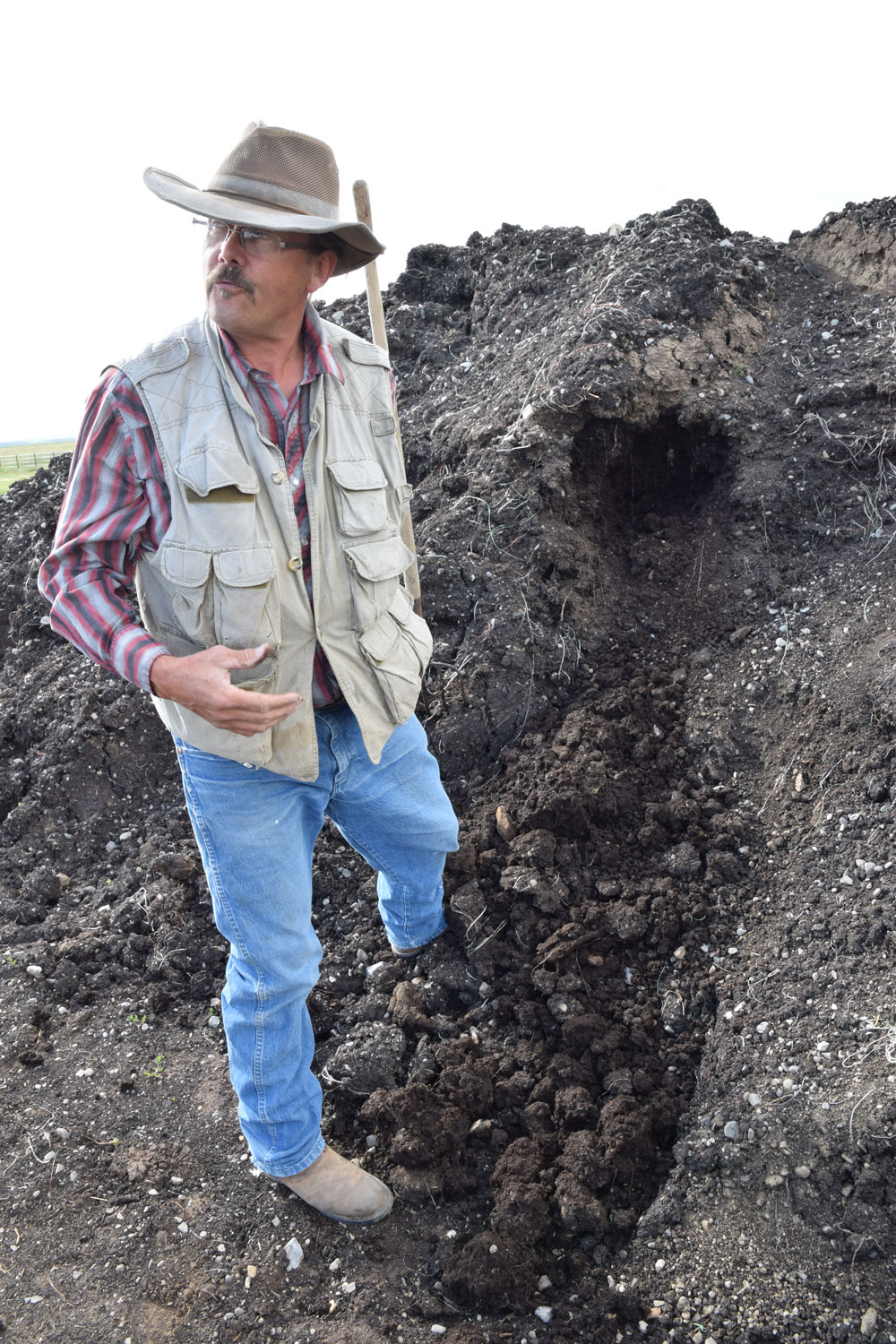
Previously made compost inspection
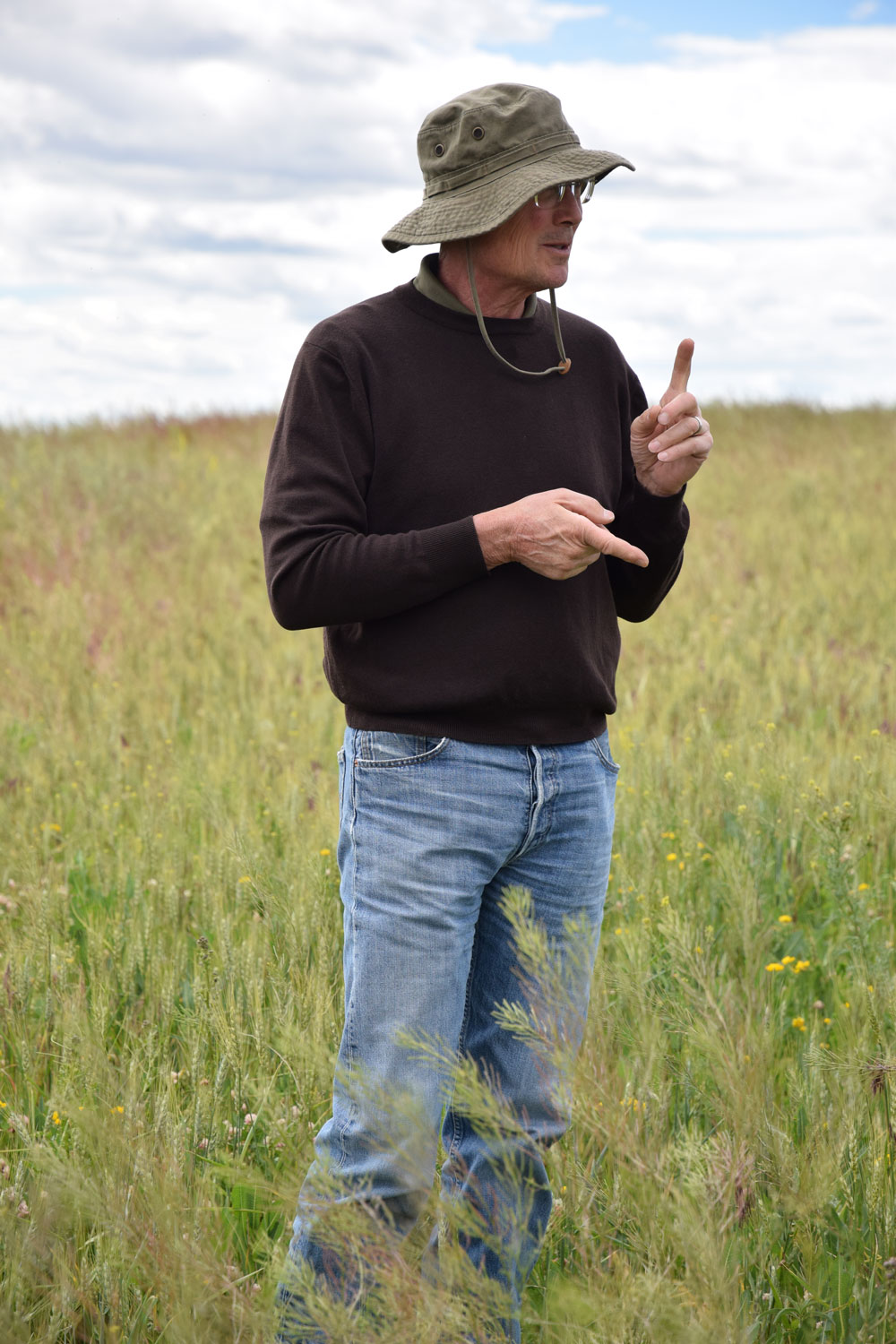
John Wick, Marin Carbon Project Co-Founder
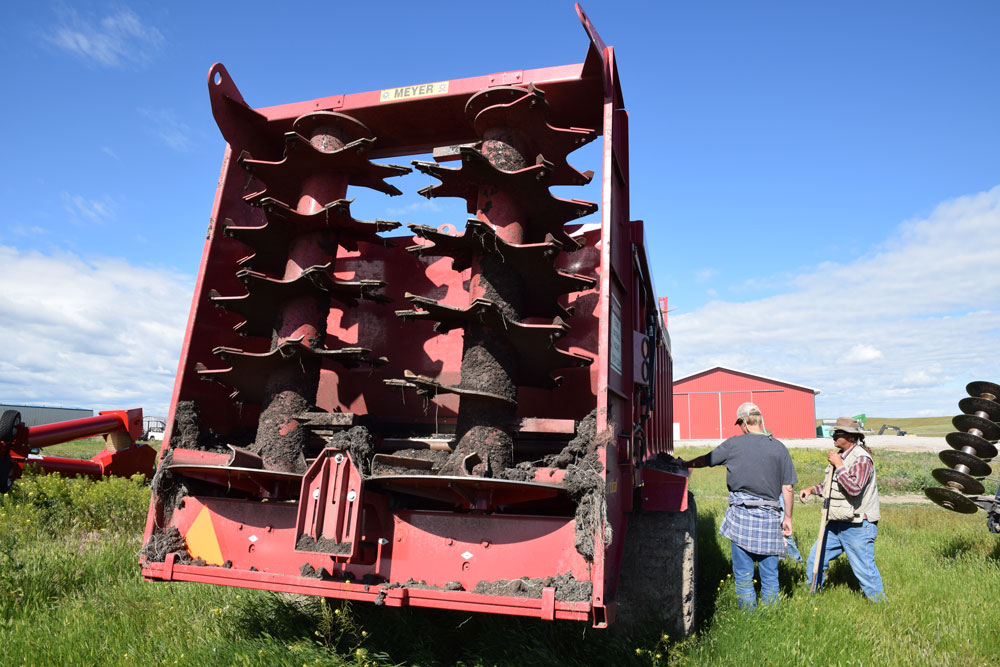
Compost spreader
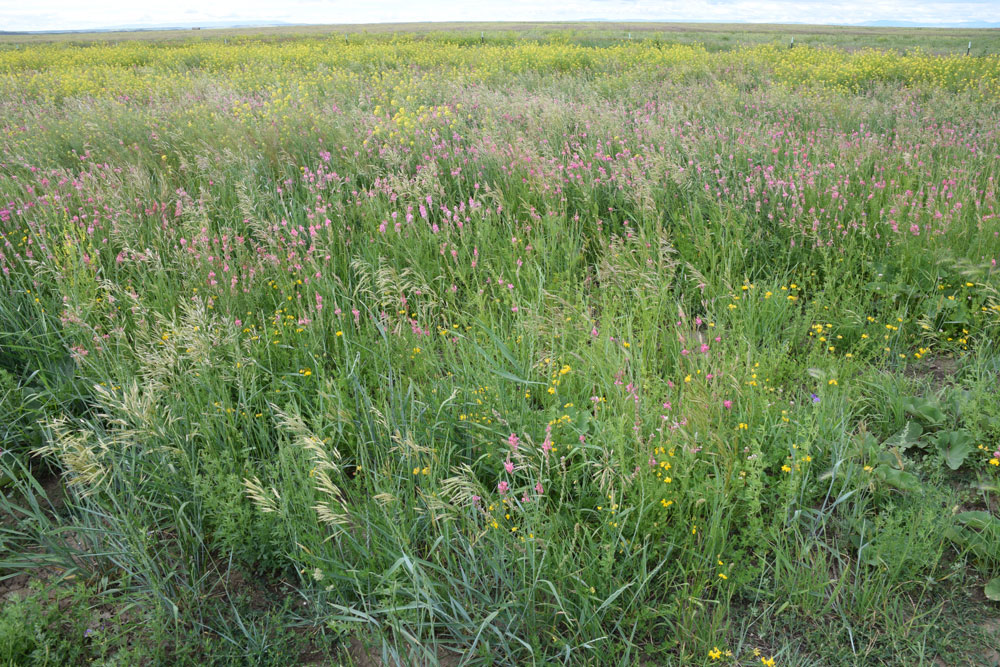
Test field with compost
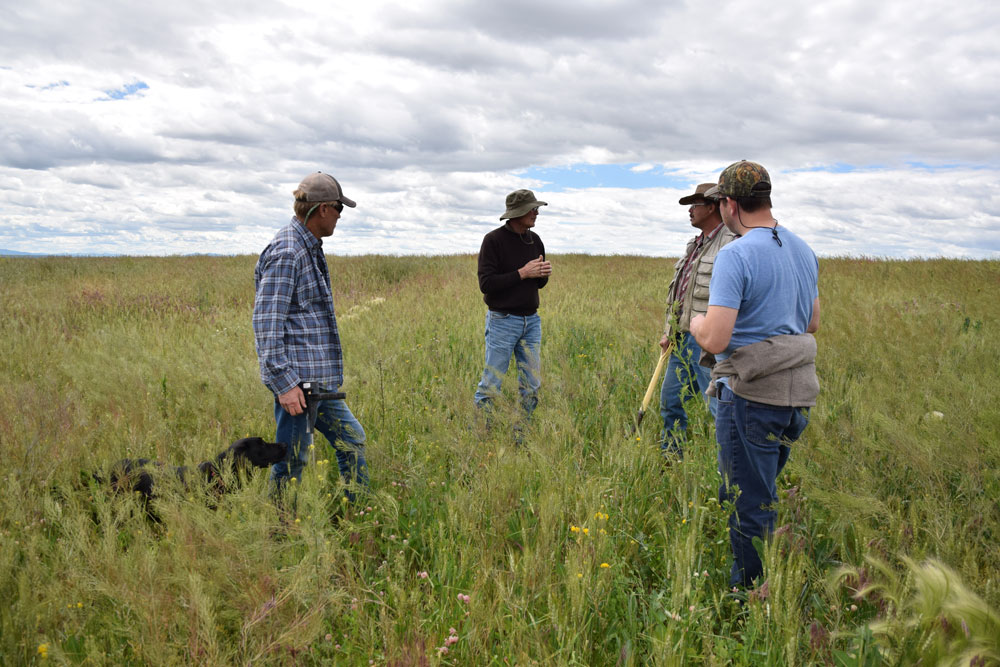
Test field with compost
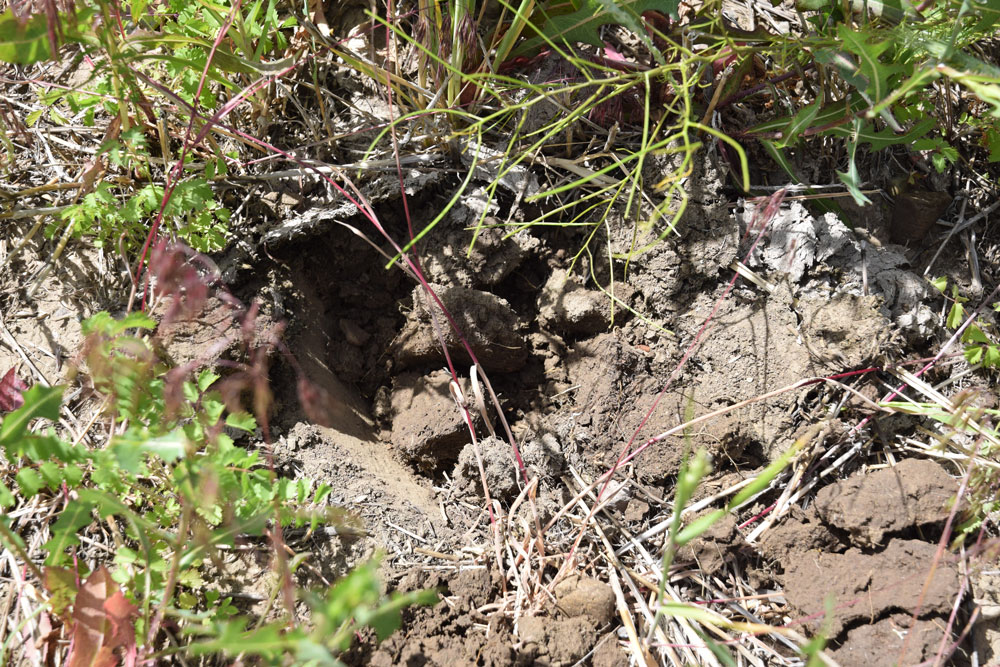
Test field with compost

Eric and Skylar, Sandy Arrow Ranch panorama
